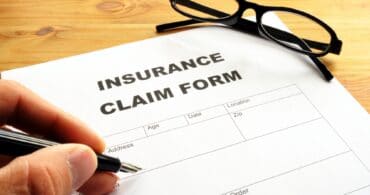7 Ways to be a Good Landlord
With a reputation as a good landlord, you will inevitably attract a better class of tenants. There is however more to being a good landlord than simply responding to maintenance requests, although this is of course important. Let’s take a look at what goes into make a decent landlord, and how you can make it as a successful buy to let investor.
With a reputation as a good landlord, you will inevitably attract a better class of tenants. There is however more to being a good landlord than simply responding to maintenance requests, although this is of course important. Let’s take a look at what goes into make a decent landlord, and how you can make it as a successful buy to let investor.
Unfortunately, tenants tend to spread more feedback on bad landlords than they do the good ones, which can lead to landlords getting a negative reputation. So, if you want to stand out as a landlord for all the right reasons rather than the wrong ones, here are some things you can do to sway things in your favour.
1. Be business-like
First and foremost, the reason you are a landlord is to earn money. So treat your buy to let as a business. Be professional at all times, and ensure you have efficient systems in place to deal with every aspect and eventuality, from sourcing and referencing tenants to dealing with maintenance issues and ensuring legal compliance.
Make sure you have someone on hand to take care of your tenants when you are away too, remembering that you have a responsibility to them for the duration of the tenancy.
2. Meet safety standards and legal requirements
Under Section 11 of the Landlord and Tenant Act 1985, landlords must undertake a number of home repair related responsibilities for any residential tenancy of less than seven years. This involves keeping the structure and exterior of the property in good repair; ensuring utility installations are well-maintained; and making sure heating and hot water installations are in good working order.
There are also various health and safety responsibilities to adhere to under the Homes (Fitness for Habitation) Act 2018, and gas, electrical and fire safety laws to comply with, including the provision of smoke and carbon monoxide alarms in line with the Smoke & Carbon Monoxide Regulations.
A good landlord will have a checklist to help them make certain that everything that is required of them by law is covered. If you don’t have the time, inclination or knowledge to deal with all the legal requirements, consider handing over to a property management company which will take care of everything for you, for a fee.
3. Observe the rules on rights of entry
Many landlords believe that because they own a property, they have an automatic right of entry without first gaining permission from the tenant.
However, there are clear rules and regulations that dictate when a landlord is allowed, and not allowed, to enter a property, and when permission is required from tenants to do so. In essence, landlords can only enter tenanted property with the tenant’s permission, and only after providing a viable explanation as to why they wish to enter. The only exception to the rule is when a landlord believes there is an immediate danger to their property.
4. Be approachable
Whilst no landlord should be expected to be available round the clock unless there is a genuine emergency, it is still important that you come across as approachable and willing to listen and deal with any issues.
Be sure to seal the landlord-tenant relationship by meeting tenants in person. Take time to ensure they are settled and satisfied. Show them how things work, provide a contact number and email address, and an alternative contact for when you’re away. Be sure to let your tenants know they are welcome to share any concerns with you, however trivial they may seem, at any point during the tenancy.
5. Be responsive
When tenants have a problem, be sure to deal with it in good time. Acknowledge the issue straight away, and provide a timescale for resolving it. Be sure to maintain open lines of communication.
It is also good practice for landlords to establish relationships with reliable tradespeople who can be deployed to rectify maintenance issues within acceptable timeframes. Never scrimp on maintenance tasks, because you’ll often find this is a false economy.
Set timescales for getting back to tenants about various issues. A holding email is a good idea to let tenants know you have received their communication and will respond within a set time period. If you are planning to be away or unavailable, provide an alternative line of contact, or if it’s a short period, let tenants know when you will be back.
6. Consider allowing tenants to keep pets
Currently, landlords are not legally obliged to accept tenants with pets, although moves are underway to make it law in the future.
Pets can be a source of higher rental income for landlords, and can also improve the wellbeing of tenants. With so many pet owners in the UK, yet few landlords allowing pets, you could set yourself apart by going pet-friendly.
Of course, there are various things to consider when letting to tenants with pets. Undertaking regular mid-term inspections to check for any pet-related damage will always be important, for example. You may wish to include a clause in your tenancy agreement asking the tenant to accept responsibility for any damage caused by the pet. A reasonable request for a higher deposit may also be wise, and you could ask the tenant to agree to cover the cost of specialist cleaning, fumigation or de-infestation at the end of the tenancy if required.
7. Go the extra mile
It’s often the smaller touches that have the biggest effect. Going the extra mile to make tenants feel comfortable and welcome will help cement your reputation as a good landlord.
A welcome pack with a friendly letter and helpful information on the local area and instructions on how everything works really does go a long way.
You may wish to provide a few basic groceries, cleaning products and toiletries are always useful and save tenants having to dash to the shops for essentials when they have all their unpacking ahead of them.
Here are a few more tips to help prepare your property for a new tenant.
Would you like a helping hand with all your landlord responsibilities?
There is a considerable amount to deal with as a buy to let investor, and, as much as you want to be the best possible landlord, you may not always have the time to handle everything yourself. So why not hand over to a property management service, but one that offers a major added benefit?
The homes2let guaranteed rent scheme secures rental payments, even during vacant periods, and takes the full burden of property management off your shoulders too.
Why not get in touch with our expert team to discover how we can make your life as a landlord that bit easier?
Related Insights

Tenant Referencing Crisis on the Cards as COVID Damages Thousands of Credit Scores
The National Residential Landlords Association (NRLA) is warning of a looming tenant referencing crisis as thousands of tenants are facing damaged credit scores caused by legal action over rent arrears in the wake of the COVID-19 pandemic. As this crisis intensifies and no government help seems forthcoming, landlords are wise to seek a reliable way to guarantee their rent.

What are Tenants’ Responsibilities for Repairs in a Rental Property?
In the private rented sector, landlords are required to keep their buy to let property well-maintained and in a good state of home repair. On the other side of the coin, tenants must ensure they act in a ‘tenant-like manner’, avoiding causing any damage to the property other than that which can be considered ‘fair wear and tear’. Wondering what tenants’ responsibilities for repairs are? Read on to find out.

The Top 5 Most Common Landlord Insurance Claims
The importance of specialist landlord insurance cannot be over-emphasised. With the risks higher for rental property than everyday residential property, the financial repercussions of not having adequate cover in place can be considerable. To help landlords plan to reduce risk, we look at the top five biggest risks posed to landlords, which inevitably result in landlord insurance claims.







